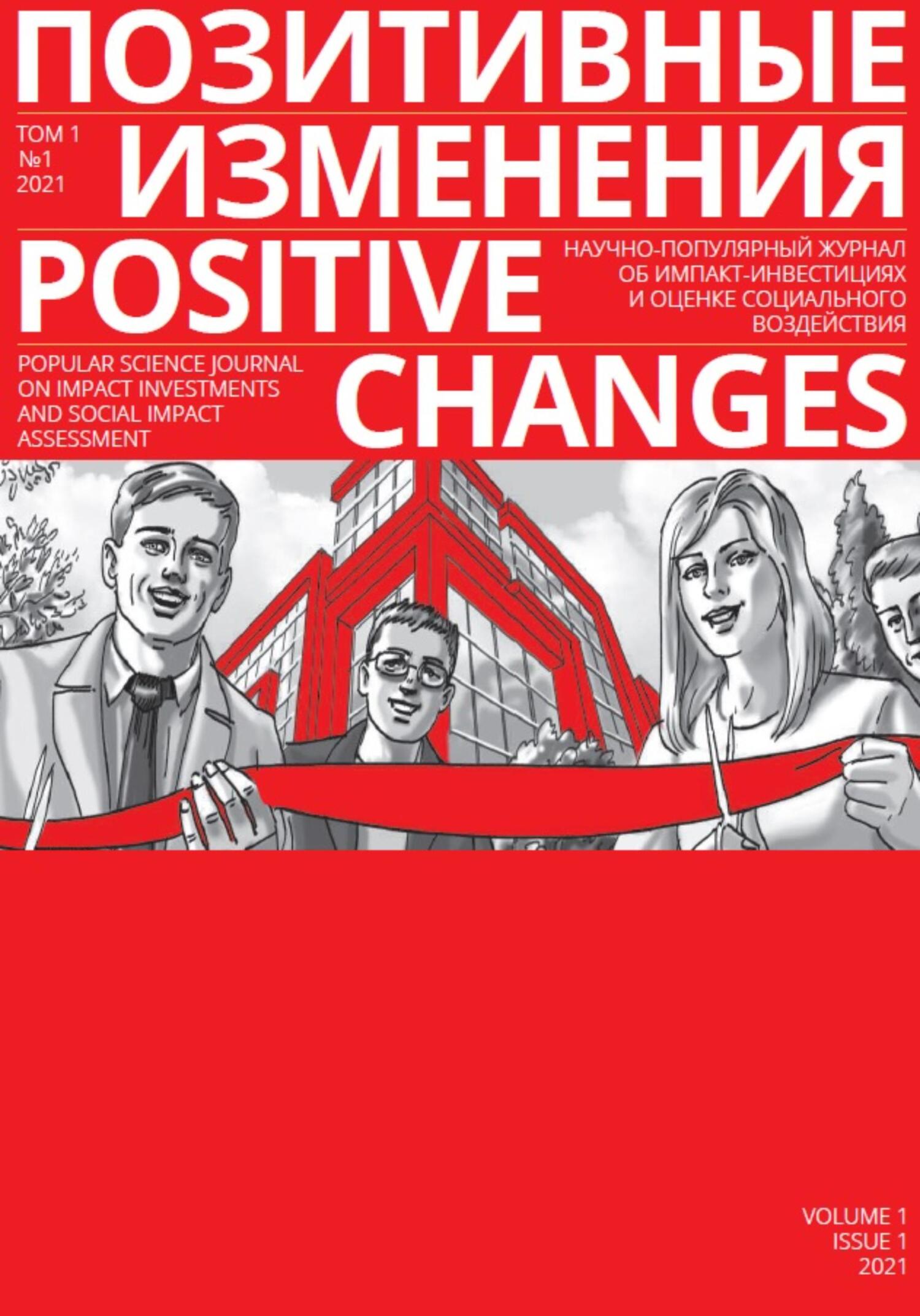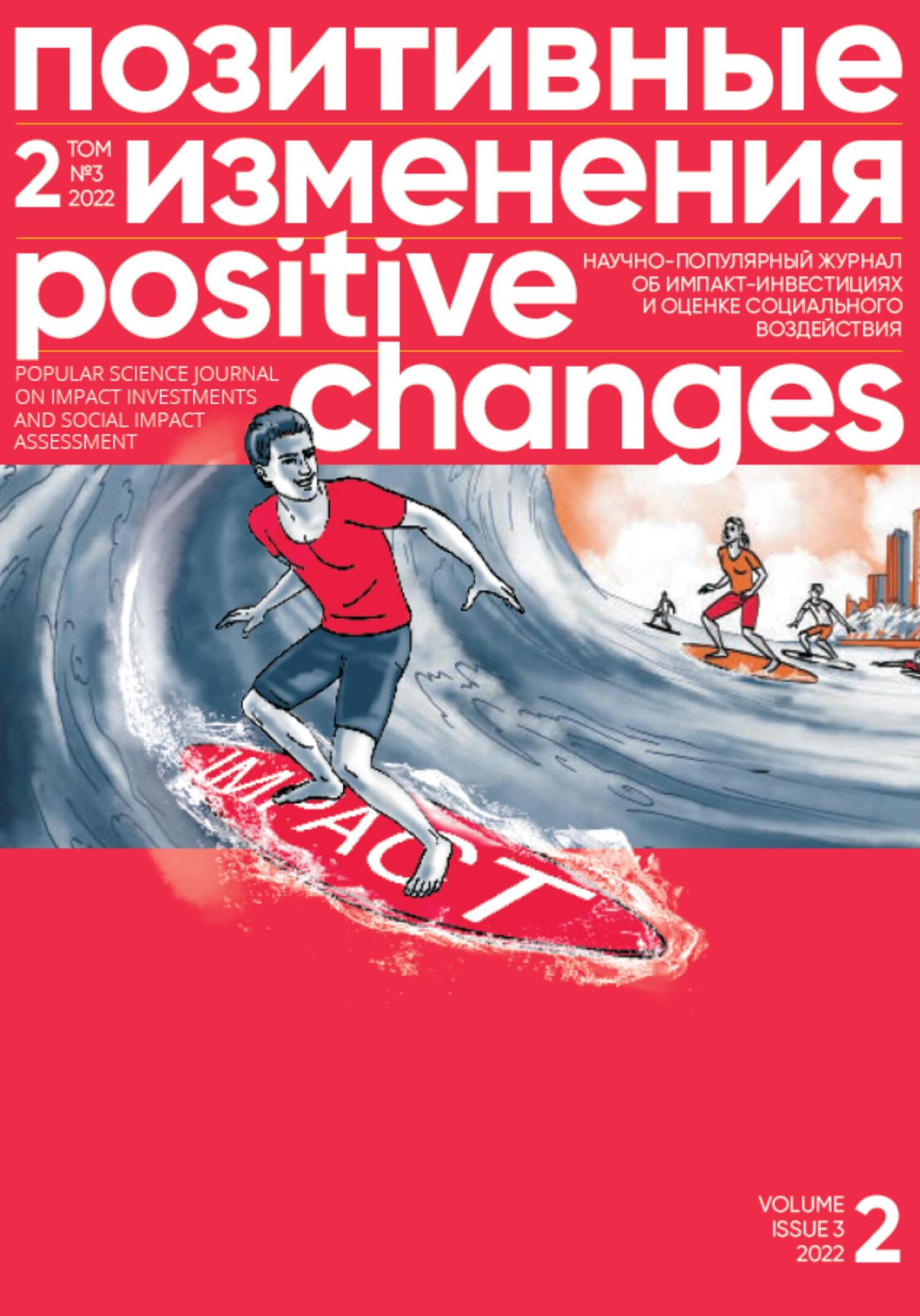carried out within approach does indeed lead to the desired change.
The evidence-based approach to social design is actively developed and implemented nowadays. This is evidenced by both the increase in the number of scientific publications and outside academic discussions and even the creation of educational programs in line with the evidence-based approach (an example of such initiative is the master’s program Evidence-Based Design and Evaluation of Programs in Social Risk Management in Childhood, opened five years ago at MSUPE (Moscow State University of Psychology and Education)).
As a justification of importance of evidence-based approach in the social sphere, we can quote two expert heuristics: illusions of “pure field" and “absolute wealth". The first is when starting a social project and proposing a new (own) solution to a social problem, authors often ignore the existing experience in solving this problem. Such a heuristic is impossible in a case, for example of a commercial project, where an important condition for its effectiveness is taking into account the market context. But it is quite possible in the public sector and the likelihood of its occurrence is high. Market research, analysis of the target audience needs, highlighting of the leading players and existing technologies, analysis of the effectiveness of existing solutions are often not considered as mandatory when developing a social project.
The Theory of Change is most often presented in the form of a map of expected results, showing how the actions under project will lead to the achievement of the project goal.
The essence of the second heuristic is that “whatever social service we provide it is definitely a good and right thing to do." Hence the widespread, humorous concept of “doing good" arose. If the service is not of high quality, does not correspond to modern ideas (including scientific ones) regarding reasons and possible approaches to solving a social problem, etc., it cannot be said that the project really contributes to the solution of this problem.
This issue becomes especially acute in a situation where the project charity recipients are vulnerable groups who, for various reasons, cannot express their opinion regarding the quality of the social services provided to them and their general attitude to the project intervention. These are, in particular, children, people with mental disabilities, homeless people, etc. In this regard, it is reasonable that the topic of practice certification in Russia has been developed in the context of children’s programs. It is worth considering ways of its possible development and application of this cited standard as an example [Practice certification standard in the field of childhood (Version No. 2. 31 August, 2018)].
REFERENCES
1. Courtney Paul Conceptualising Social Value for the Third Sector and Developing Methods for Its Assessment [Magazine]. — [s.l.]: International Society for Third-Sector Research Voluntas, 2018 — https://doi.org/10.1007/s11266–017–9908–3: Vol. 29.
2. Ebrahim Alnoor Measuring Social Change: Performance and Accountability in a Complex World — [Book]. — 2019.
3. Grieco Cecilia Assessing Social Impact of Social Enterprises. Does One Size Really Fit All? [Book]. — [s.l.]: Springer, 2015.
4. Takyi Stephen Appiah REVIEW OF SOCIAL IMPACTS ASSESSMENT (SIA): APPROACH, IMPORTANCE, CHALLENGES AND POLICY IMPLICATIONS [Magazine]. — [s.l.]: International Journal of Arts & Sciences, 2014 — Vl. 07(05):217–234 (2014).
5. A. I. Kim, V. K. Kopytok, Yu.A. Filippova, M. V. Tsygankov The Theory of Change application for strategic audit and strategic planning in Russia / Accounts Chamber of the Russian Federation, Center for Advanced Management Decisions — М., 2020. — p. 28.
6. A. I. Kuzmin Evaluation of programs: methodology and practice. /Ed. A. I. Kuzmin, R. O'Sullivan, N. A. Kosheleva // M.: Presto-RK publishing house — 2009.
7. A. I. Kuzmin Local problems in development of evaluation (https://evaluationconsulting.blogspot. com/2020/10/blog-post.html).
8. A. I. Kuzmin, N. A. Kosheleva Theory of Change: general recommendations for use (from the experience of the Victoria BDF) // M.: Prospect publishing house. — 2014.
9. N. V. Rozhdestvenskaya, S. B. Boguslavskaya, O. S. Bobrova. Evaluation of the effectiveness of non-profit organizations projects, social entrepreneurship and civic initiatives [Book]. — SPb: Publishing house of the Polytechnic University, 2016.
10. Practice certification standard in the field of childhood (Version No. 2. 31 August, 2018) [In Internet]. — http://www.ozenka.info/about/dokazatelniy_podhod/standart_dokazatelnosti_praktik/402_file_2.pdf.
CONCLUSION
This review provides a very brief analysis of a number of key terms included in the language corpus of the subject area of social projects and programs assessment. We hope that the analysis presented will contribute to the development of common approaches and a unified conceptual framework in the field of impact investments and contribute to both the formation of standards and wider general implementation of the charitable projects and social impact assessment system.
Нобелевская премия–2021 по экономике: новый шаг в оценке социального воздействия
Мы давно привыкли к присутствию сложных научных открытий в нашей повседневной жизни. Глубокая ассимиляция бытовых привычек и высоких технологий — наша привычная среда.
Елена Авраменко,
эксперт проекта «Разработка модели оценки социально-экономического воздействия НКО» фонда Gladway, мастер Lean 6 Sigma уровня Green Belt
Переводя многие процессы и сферы жизни в цифру, мы задумываемся о том, чья очередь дальше? Как оценить успешность новых процессов? И можем ли мы с помощью современных технологий и канонов математики оцифровать, оценить, сравнить, спрогнозировать не охваченные еще процессы?
Оценка социального воздействия современного бизнеса — одна из актуальных задач текущего времени. Импакт-бизнес, безусловно, должен быть успешен в двух сферах — как в экономике, так и в реализации своей социальной миссии. И если с оценкой экономической эффективности бизнеса все достаточно понятно, как оценить, стала ли жизнь в обществе лучше в результате реализации импакт-миссии? Перед оценивающим всегда стоит непростая задача — выбрать верный метод и базироваться на достоверных данных, которые в процессе импакт-влияния нужно еще выявить и правильно собрать.
Лауреаты Нобелевской премии 2021 года в области экономики Дэвид Кард, Хидо Имбенс и Джошуа Ангрист — трое ученых из американских университетов — сделали важный шаг в этом направлении, показав миру способы того, как можно сделать научные выводы на материале, казалось бы, ненаучных экспериментов. Эту методологию можно использовать для оценки сложных







